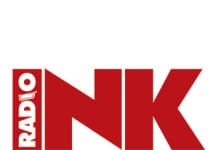Charging for news coverage — dollars for stories – sounds like something that shocks the conscience. A Nogales radio station is alleged to have charged its Nogales city government for positive news interviews about its municipal performance. What, if any, might be an FCC violation here and does the city of Nogales have any valid FCC complaint because the radio station levied charges for paid news interviews?
This is a sponsorship identification issue. Simply put, any radio station content for which a radio station or someone associated with the station receives compensation, whether it be for news stories, commentary, music, appearances or mentions, must be identified as sponsored. If such paid-for content is not so identified, then there is a significant FCC rule violation.
Several years ago, television stations became embroiled in issues with video news releases (VNRs). Television stations were fined by the FCC for using corporate VNRs in news broadcasts without stating that the VNRs were supplied by outside entities that just happened to have an interest in the content and points of view stated in the VNRs.
Payments for radio news content or coverage without sponsorship identifications are similar to corporate-supplied VNRs. Such payments for content or coverage, if not revealed on the air in clear sponsorship identifications, are significant violations of the FCC’s sponsorship identification rules.
Notably, the sponsorship identification requirements of the FCC are criminal laws. When the FCC and feds in the past have dealt with payola and plugola which are the extreme forms of sponsorship ID failures, there has been the potential for huge fines and even possible jail time for some violations.
Here is what the FCC says about sponsorship identification on its website:
Section 317 of the Communications Act of 1934, as amended, 47 U.S.C. § 317, requires broadcasters to disclose to their listeners or viewers if matter has been aired in exchange for money, services or other valuable consideration. The announcement must be aired when the subject matter is broadcast.
As for anyone who takes money or proffers money for radio broadcast airtime (the payola/plugola rule but could also easily apply to non-recorded music content), the FCC states:
Section 507 of the Communications Act, 47 U.S.C. § 508, requires that, when anyone provides or promises to provide money, services or other consideration to someone to include program matter in a broadcast, that fact must be disclosed in advance of the broadcast, ultimately to the station over which the matter is to be aired. Both the person providing or promising to provide the money, services or other consideration and the recipient are obligated to make this disclosure so that the station may broadcast the sponsorship identification announcement required by Section 317 of the Communications Act. Failure to disclose such payment or the providing of services or other consideration, or promise to provide them, is commonly referred to as “payola”’ and is punishable by a fine of not more than $10,000 or imprisonment for not more than one year or both.
Say a radio station wants to sell a segment called “good news” or “happy news”, and takes money for running the segment. Provided the news segment including the content is identified as sponsored, the radio station is in compliance with the FCC’s sponsorship identification rules, no matter how journalistically repugnant such a news segment might be.
Let’s take a specific look at what is alleged to have taken place at the Nogales radio station in question. This discussion is not an attempt to comment upon whether the radio station did anything wrong, but rather to discuss what is alleged and the applicable FCC rules.
Payments from the city for “news interviews” with city officials: This is a simple answer. Without any comment upon the journalistic integrity of doing so, paid news interviews, if clearly identified as sponsored by the municipality, do not violate FCC rules. A city purchasing sponsored radio time to disseminate a point of view is like any other entity, person or group doing so, and radio stations may run or reject such sponsored time as the station sees fit provided that the required sponsorship identification is broadcast.
Allegation that news coverage and listener commentary turned negative after payments for “news interviews” stopped: Here, it is not clear whether there was simply a lack of the positive-viewpoint paid interviews that created the alleged imbalance, or a change in the journalistic tenor of programming content took place due to the city no longer being a good client.
There are fairly ancient FCC policies about news slanting which, if there was a deliberate distortion of facts, might come into play. Those policies, however, have questionable current validity given the abolition of the fairness doctrine and related FCC policies. With respect to the sponsorship identification rules, as there is no allegation that anyone was paying or otherwise providing consideration for the broadcast of bad news or negative viewpoints about city administration, there does not appear to be any violation there.
Sometimes radio advertising brings good results far beyond the fact of the sponsored message itself. Possibly listeners who called into the station were previously enamored with the city’s municipal performance due to the positive information given in the sponsored messages. When the paid positive messages ceased, listeners stopped being so smitten with the city. Maybe without the sponsored positive messages, the only actual news about the city was bad news. But, without an allegation that anyone was paying for bad news to be broadcast, there is no failure of sponsorship identification and no FCC violation.
Commercials about the city’s library services and use of recycling containers: Kudos to the city for recognizing the effectiveness of radio advertising!
Allegation that the radio station ignored positive news like road improvements, youth baseball tournaments and Chamber of Commerce announcements: Maybe the radio station got it wrong and its listeners really did care about the repaving of a road, a Little League game, or a Chamber of Commerce luncheon speaker. Or maybe not. Decisions on such coverage or the lack thereof are the exclusive province of the radio station licensee and its management. The only ostensible FCC review comes every eight years at license renewal time when one of the license renewal requirements is that the station identified the issues of concern to its community, and on a quarterly basis put a listing of programs addressing such issues into its local public file.
In Nogales, it appears that the city is asking the FCC and the state attorney general to investigate the radio station’s programming in a governmental attempt to interfere with freedom of the press, a.k.a. the First Amendment. It is instructive to ask if the city’s complaint regarding unfair news coverage would sound deserving of governmental censure if the allegations were against a newspaper. Radio stations arguably have the same First Amendment protections as do newspapers with the caveat that sponsored content must be identified as such to the listening audience.
It is my view that actions of a municipality invoking the heavy hand of governmental regulation upon the broadcast of adverse views does not belong in this country. Provided that the radio station properly identified sponsored content, the actions of Nogales to attempt to influence the radio station’s content through complaints to the FCC and the state’s attorney general is thoroughly un-American.








